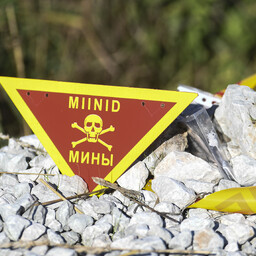The defense ministers of Estonia, Latvia, Lithuania, and Poland said on Tuesday that their countries are withdrawing from the Ottawa Convention. This convention prohibits the use of anti-personnel mines. The defense ministers stated that it is now crucial to allow their defense forces the freedom to use new weapons systems. This will help protect NATO's eastern border.
The defense ministers of the four countries said in a joint statement: "We unanimously wish to withdraw from the Ottawa Convention. By doing so, we demonstrate our readiness to use all possible measures to protect our territory and freedom." The statement was signed by Estonia's Defense Minister Hanno Pevkur, Latvia's Defense Minister Andris Spruds, Lithuania's Defense Minister Dovile Šakaliene, and Poland's Defense Minister Wladyslaw Kosiniak-Kamysz.
The defense ministers said that the security situation has deteriorated since joining the Ottawa Convention. The threat from Russia and Belarus to NATO countries has increased. "Due to Russia's aggression, it is crucial to take measures to strengthen our defense capability," they emphasized.
Estonian Foreign Minister Margus Tsahkna said that Russia has not joined the Ottawa Convention. Therefore, it is not right to prohibit ourselves from using weapons that Russia may use. The defense ministers confirmed that their countries still adhere to international humanitarian law. This includes the protection of civilians during war.
Tsahkna said that other countries are considering withdrawing from the Ottawa Convention. For example, in Finland, over 50,000 signatures were collected in December to discuss withdrawal from the convention. The Finnish parliament will begin discussing this issue.
The Ottawa Convention banned the use, production, and stockpiling of anti-personnel mines. The convention entered into force on March 1, 1999. Estonia joined it on October 1, 2004. The aim of the convention is to reduce the suffering and casualties caused by anti-personnel mines.

